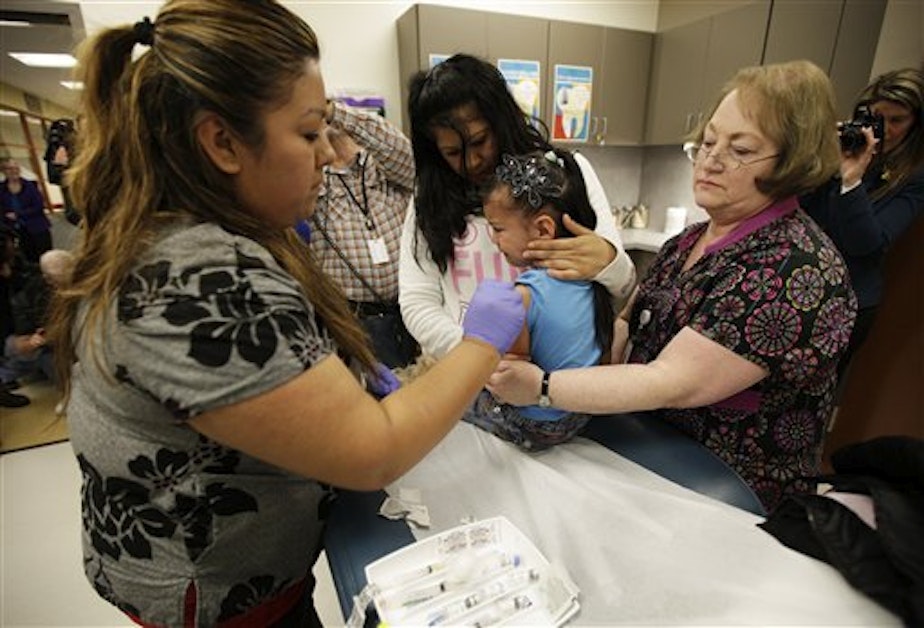Vaccine-Hesitant Parents Are Target Of Group Health Study

Doctors on tight schedules often have a hard time answering questions about vaccines.
It’s especially challenging when the questions are not straightforward, says Group Health researcher Nora Henrikson.
Like, “concerns about vaccine safety, concerns that we don’t see these diseases so much anymore so the vaccine can look worse than the disease that it’s designed to prevent.” So Henrikson and her colleagues designed a training program to help guide these conversations. It goes something like this: “Open the topic, and then acknowledge any concerns that the parent might have. And then advise, make strong recommendation about vaccines,” Henrikson says.
Researchers also wanted to see if the training affected parents’ attitudes toward vaccines. The study involved more than 340 mothers of newborns who were receiving care at 56 primary care clinics in Western Washington. Only half of the clinics received onsite training.
At the end of the study, the vaccine hesitancy rate wasn’t much different between the clinics that got the training and those that didn’t.
It was not the result they had hoped for, Henrikson says. But it gave them ideas on what to work on next. The Group Health study is published this month in the journal Pediatrics.
Washington’s immunization rate is about 71 percent for kids under 3 years old. It’s an improvement over previous years, but still below state and national goals.
How to get the message out is one way to intervene. Timing is also another factor, says Dr. Elizabeth Rosenblum, a family physician at the University of California-San Diego.
Rosenblum says ideally doctors would talk about vaccines before the baby is born. By the time the baby arrives, it might be too late to influence parents’ thinking.
“They’ve already had so many conversations, or had so many people give them information and misinformation about vaccines that in fact they’ve already made up their minds,” Rosenblum says. “Better to start it during pregnancy and start bringing up the conversation then.
Rosenblum says there will be people who feel strongly against vaccines. But from a public health standpoint, vaccines offer the best protection for children from infectious diseases.

